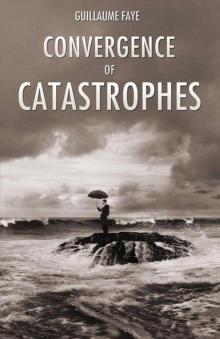Archeofuturism, page 10




Secondly, a minority percentage of humanity would continue to live according to the techno-scientific economic model based on ongoing innovation by establishing a ‘global exchange network’ of about a billion people. A considerable advantage of this would be a strong reduction in pollution. Besides, it is difficult to envisage any other solution that would ensure the salvation of the global ecosystem, for even in the near future it will be impossible to make any wide-scale use of clean energy sources.
Finally, these vast, neo-archaic economic blocs would be centred upon a continental or multi-continental plan, with basically no mutual exchange between them. Only the techno-scientific portion of humanity would have access to the global exchange.
This two-tier world economy thus combines archaism and futurism. The techno-scientific portion of humanity would have no right to intervene in the affairs of the neo-medieval communities that form the majority of the population, nor – most importantly – would it in any way be obliged to ‘help’ them. No doubt, this presents a monstrous picture to the modern and egalitarian spirit, yet in terms of actual collective well-being – which is to say justice – a revolutionary scenario of this sort may prove rather pertinent.
On the other hand, freed from the economic burden of areas ‘to be developed’ and ‘helped’, the minority portion of humanity would live in a techno-scientific economic system where innovation would take place at a far higher speed than it does now. Here too, the return to archaism can be seen to foster futurism and vice versa.
This is only a sketch, an outline. It would be the job of economists to carry on this reflection.
G. The revolution in biotechnologies. It is in the sphere of biotechnology that the need for Archeofuturism appears most evident. Modern and egalitarian ways of thinking, caught up as they are in the guilt-engendering pitfall of human-rights ‘ethics’, are incapable of dealing with biotechnological progress and face moral obstacles that are actually para-religious in nature. In such a way, modernism ends up being anti-scientific. It hinders the development of genetic and trans-genetic engineering. Paradoxically, only neo-archaic ways of thinking enable the use of the genetic technologies that are constantly being curbed today. The modern outlook runs against a substantial obstacle: anthropocentrism and the egalitarian sacralisation of human life, which it inherited from secularised Christianity.
Let us consider the numerous ways in which the biotechnology that is already being developed could be used, now that the stage of animal experimentation is over.
Technologies related to positive eugenics would make it possible not only to cure genetic diseases, but also to improve – by transgenic means – the hereditary performance of individuals, according to chosen criteria. We should also mention the (now imminent) application to man of a process that has already been successfully tested upon animals: the creation of inter-specific hybrids, ‘human chimeras’ or ‘para-humans’ that would find countless applications.
Two American researchers have already patented such practices,[53] which have been blocked by politically correct ‘ethical committees’. Man-animal hybrids or semi-artificial living creatures would have countless uses, as would decerebrated human clones, which could be used as organ banks. This would put a stop to the odious traffic that particularly affects the poor people in Andean America.
Let us also recall the potential human application of a technology that has already been tested on sheep in Scotland: ‘birth without pregnancy’ through the development of embryos in an artificial amniotic environment (‘incubators’).
Clearly, those who support modern ideology consider the mere mention of such technologies as something Satanic. Yet, their use is becoming possible... Is it better then to brutally censure a scientific discovery or to carefully consider its social applications?
H. The Archeofuturist ethic. Archeofuturism would enable us to do away with the scourge of egalitarian modernism, which is hardly compatible with the century of iron that awaits us: the weak spirit of humanitarianism, a sham ethic which raises ‘human dignity’ to the rank of a ridiculous dogma. This, not to mention the hypocrisy of the many well-meaning souls who yesterday forgot to denounce Communist crimes and today have nothing to say about the embargo on Iraq and Cuba by the American superpower,[54] Indian nuclear tests, the oppression of the Palestinians, etc.
This spirit serves as a means of moral disarmament, for it establishes paralysing proscriptions, taboos that engender guilt and concretely prevent European public opinion and leaders from facing the present threats.
Actually, what is promoted and implemented under the guise of moral principles is a Leftist policy that aims to destroy the very European substratum of Europe. For instance, the campaign against the (legal) deportation of ‘sans-papiers’ – which is to say illegal immigrants – led by the French intelligentsia and show business’ efforts to make the deportation of any immigrant impossible in the name of human rights and the pseudo-principles of charity. The underlying ideology and true strategic objective here is – according to a neo-Trotskyist plan – the flooding of Europe with the surplus population of peoples from the South.
A further dilemma: the campaigns against the nuclear power industry, which are leading to the dismantling of Swedish and German plants and to the complete abandonment of nuclear power by some of the European states, with the exception of France, which continues to resist – but for how much longer? Everybody knows that, controllable accidents notwithstanding, nuclear energy is the least polluting among the energies currently available.
This operation, too, aims at weakening Europe through the excuse of humanitarianism, by depriving it of the leading energy technologies, economic independence, and – at the same time –of any integrated form of nuclear deterrence. The stimulus behind this manipulation, of which the credulous intellectual and artistic bourgeoisie of Europe has been made a victim, is a sort of monstrous and irresponsible exaggeration of the maxim ‘love thy neighbour like thyself’ – an apology for weakness and a pathological form of emasculation and self-blame. What we are facing here is a sub-culture of emotionality, a cult of decline that serves to lobotomise European public opinion.
Defeatism, however, is utterly foreign to archaic ways of thinking. It will be necessary to restore the archaic frame of mind if we are to survive in the future.
A certain harshness, a resolute frankness, a taste for pride and honour, common sense, pragmatism, a rejection of all non-selective social organisations, an ethic capable of legitimising – if necessary – the use of strength and that will not back down out of dogmatic humanitarianism when faced by the challenges of technological science, an inclusion of warrior virtues and the principles of urgency and inevitable confrontation, a notion of justice whereby it is duties that legitimise rights rather than vice versa, the natural acceptance of an inegalitarian and pluralist organisation of the world (also on an economic level), an aspiration towards collective power, and finally the communitarian ideal: these are some of the virtues of the archaic outlook. They will be essential in the world of tomorrow, which will be marked by bitter confrontations. A neo-archaic mindset – which is in no way barbaric, as it includes the pre-humanitarian and inegalitarian principle of justice – will be the only one compatible with the character of the approaching century.
I. Archeofuturism and the question of meaning. What religion? One of the few obvious things about our age, which both traditionalists and modernists agree about, is that Western civilisation has de-spiritualised life, destroying all transcendental values.
The failed attempts at established secular religions, the empty disenchantment created by a civilisation that bases its ultimate legitimacy on the value of exchange and the cult of money, and the self-destruction of Christianity have engendered a situation that cannot endure. Malraux[55] was right: the Twenty-first century will witness a return to spirituality and religion. Fine, but in what form?
Already, Islam is making inroads through the breach, offering to fill the spiritual void of Europe. Yet this hypothesis – which may well become reality – is dangerous. Because of its extreme dogmatism Islam would risk destroying the creativity and inventiveness of the European soul, its Faustian free spirit. On the other hand, the Machiavellian plans of certain American strategists has led them to encourage the penetration and entrenchment of Islam in Europe in such a way as to induce paralysis. General de Gaulle’s words come to mind: ‘It is not desirable to see Colombey-les-deux-Églises turn one day into Colombey-les-deux-Mosquées.’[56]
3. Ideologically Dissident Statements
Politically Correct or Politically Chic?
The idea of ‘political correctness’ is not based on any sincere ethical feelings or even fear of physical repression: it is based on intellectual snobbishness and social cowardice. Actually, it is about what is politically chic. The journalists and ‘thinkers’ of the system are formulating a ‘soft’ and bourgeois version of the Stalinist mechanism of domination: the risk is no longer ending up in a gulag, but of not being invited to trendy restaurants, of being barred from places that count and from the media, of losing one’s appeal in the eyes of beautiful girls, etc. This is the kind of misfortune that befell Jean Baudrillard.[57] Being politically correct is a matter not of ideology but of social acceptance.
The Ruse of Political Correctness
Political correctness operates through ‘sham reversal’, an extraordinary ruse: one denounces things like ‘political correctness’ and ‘hegemonic thought’, while actually being perfectly ‘correct’ himself; one gives the impression of being politically incorrect – as Jean-François Kahn does – while perfectly adhering to the dominant ideology. In such a way, every actually rebellious thought is neutralised through sham rebellion. The ‘politically correct’ people hiding behind the mask of political incorrectness must be smoked out – from Benamou[58] to Bourdieu, without forgetting the whole editorial staff of Charlie Hebdo.[59]
From Censorship to Distraction
The system only makes use of brutal censorship in very limited areas: it generally resorts to intellectual diversion, i.e., distraction, by constantly focusing people’s attention on side issues. What we are dealing with here is not simply the usual brutalisation of the population via the increasingly sophisticated mass-media apparatus of the society of the spectacle – a veritable ‘audiovisual Prozac’ – but rather a concealment of essential political problems (immigration, pollution, transportation policies, the ageing of the population, the financial crisis of the social budgets expected to occur by 2010, etc.) through a constant discussion of superficial debates on secondary issues: homosexual marriage, PACS (‘Civil Pact of Solidarity’),[60] gender equality among political candidates, doping in sports, the legalising of cannabis, etc. The focus on these insignificant problems prevents the discussion of urgent and crucial questions. Clearly, this is most convenient for a political class whose members are only interested in furthering their own careers and ‘avoid stirring the waters’, according to the principle ‘after me, the deluge’.[61] Constantinople is under siege and we’re debating the gender of angels.
‘Consultation’ and ‘Negotiation’:
Scourges of Modern Democracy
‘Moderate’ politicians have come up with a dreadful notion: consultation, which is seen as a way of ‘modernising democracy’, when it is actually a sign that Western liberal democracy is degenerating and committing suicide. Consultation serves as a pretext for inaction: for it blocks all decision-making by reducing it to bastard and minimalist compromises based on a general agreement among various pressure groups and minor trade unions. In a time of emergency such as ours this is a disastrous approach. Through consultation an attempt is made to conceal the fear of action, of risks and responsibilities, and to avoid falling out with the media, shocking minorities active in the field of political correctness, and stirring the anger of unions that cling to their privileges. Most importantly, it represents an attempt to avoid conflicts and problems: the need to face lorry drivers, the ‘young’, teachers, etc. The catchword here is ‘avoid stirring the waters!’ To hell with the general interest! Fire fighting is tiring and you could even burn your fingers. Consultation means the shipwreck of the democratic state subject to the rule of law: for those in power forgo the programme ratified by the majority of citizens in order to bargain with non-representative institutions. The true ‘consultation’ is actually represented by general elections. The primacy of consultation only leads to the maintenance of the status quo, conservatism, laissez faire and political regression.
The soft side of consultation is negotiation. When a legal and legitimate political decision happens to shock or harm a tiny but active minority backed by the media, politicians give in, emptying the policy of its content out of fear, laziness, cowardice or discouragement. In such a way, exceptions and privileges replace law, and indecision replaces decision, all because of impotence.
Here are a few examples: illegal immigrants can no longer be expelled; any reform of the diseased national education system is made impossible; every plan to reorganise the social security system fails; a rational transportation policy becomes unfeasible – and so on...
The parliamentary Right is a champion in this field: it has never managed to accept the fact that politics is a battle where it is both essential and inevitable to displease part of the electorate, face interest groups, and suffer the moral rebukes of the Left. Right-wing governments have always been soft. They fear confrontation and do not dare to implement the ideas and programmes by which they came to power, for they feel they have no legitimacy to do so. A Right-wing government would rather avoid displeasing those who voted against it rather than please its own electorate. Winning the favour of the Left is a delight for the Right: like those RPR[62] MPs who were beside themselves when the Left applauded them and praised their ‘modern’ spirit and Republican ethics after they had announced– against their own party’s will – that they were going to vote in favour of PACS!
Under moral and democratic pretexts, consultation and negotiation give a concrete expression to the disgraceful sagging of democracy and the state based on the rule of law. By rejecting the principles of authority and legitimate decision-making, Western political systems are heading towards failure and self-destruction. Might it be that they are paving the way for the return of autocrats?
Establishing ‘Ideologically
Liberated Territories’ and Creating Meaning
In order to break free from the ideological cage the system has shut us up in, it is important to establish ideologically liberated territories. The dominant system is too sure of itself and shows its inefficiency and ineptness when it seeks to exercise censorship. This represents a chance which radical currents of thought should jump at, particularly by addressing the young.
The great weakness of the system is that it believes people are stupid and it seeks to narcotise them or get round them by clumsy means – something which ends up tiring people and proving ineffective. The strategy chosen to contain ‘dangerous ideas’ has been to defuse all ideas, whatever they may be, and – most importantly – sterilising thought and reflection. In the media or in social relations, all that is habitual, banal, predictable, analgesic, futile and effortless, or ‘moral’, ‘positive’ and ‘nice’, is also politically correct. The extraordinary mediatisation of sport is part of this device. Yet this vast ideological emptiness and lack of any values (except for the well-worn ones of hypocritical humanitarianism), the complete lack of seriousness in media talk, the superficiality of ‘computer game culture’, and the sickening repetition of things devoid of any content, perspectives or depth ultimately engender a form of deficiency.
The future and power belong to those who have things to say and real problems to pose. Simply because these people are more interesting, like novelists telling real stories instead of boring fairytales; because they bring up sore points and address the ‘real problems of real people’, to quote Margaret Thatcher. Any radical project must make its way past the breach created by this age of absolute conservatism. The young are waiting for some meaning to bite into.
Society of the Spectacle and Society of Game
The society of the spectacle that Guy Débord denounced in 1967 as a society of alienation – one based not merely on economic exploitation, but also on the continuous use of images and objects, and on the multiplying of simulated experiences through the entertainment industry – has grown far more sophisticated. Not merely because of the boom in audiovisual technology and the Internet, but because in order to better capture people’s spirits it has focused on the spectacle of Game. From time immemorial, games – mock wars – have been forms of behaviour providing strong psychological release that have fascinated man and allowed the ‘masters of the game’ to control both actors and spectators. The games in the Roman circus were a political means of loosening tensions. Today we are witnessing the growing influence of games: sport shows followed by billions of people on TV, a boom in video games, TV games and soon virtual games as well (the pinnacle of simulacrums), the multiplying of products offered by ‘Française des Jeux’[63] and ‘funfairs’... But the game par excellence is the sphere of emptiness. In games there is nothing at stake a fortiori[64] for those who are mere spectators trapped in the pseudo-mobilisation of their own hubris. This is a real piece of cake for the system: ‘Pay and play, pay and watch others play.’ It is hardly surprising that Western states are fostering this society of the game like ancient Rome did during its decline, only in a far more influential way thanks to audiovisual and computer technology.



















